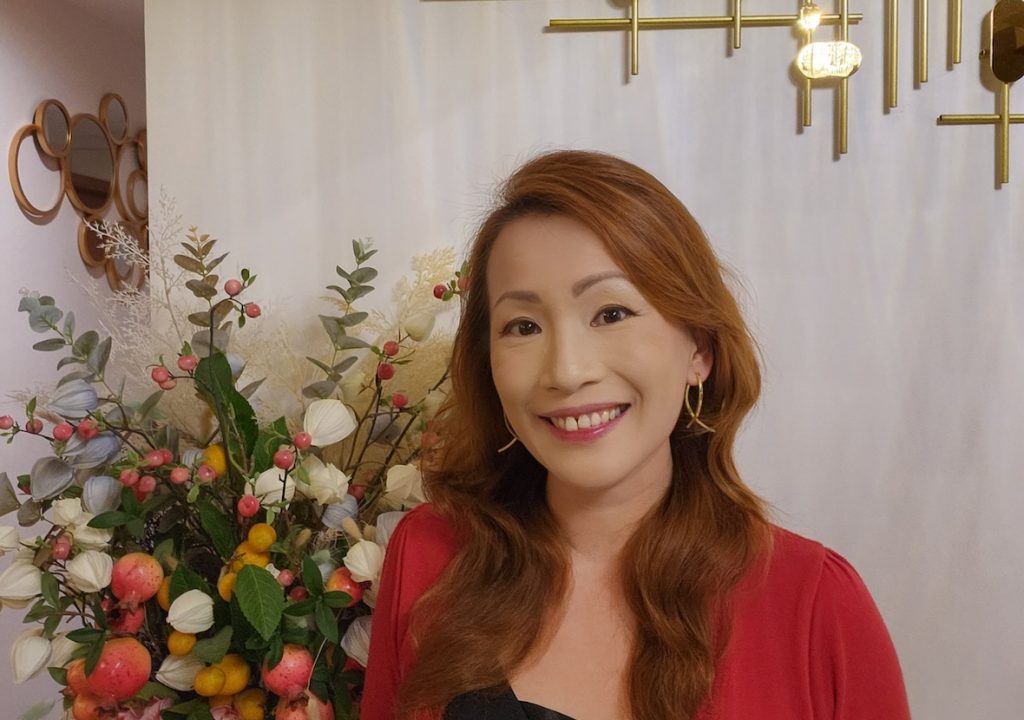Meet Lydia Lim, a PEAKS Psychologist, People Analytics and Management Consultant with the Research Communication International. She is also the Chief Psychologist and one of the three founders of getconnected.sg. With over 20 years of experience in clinical practice, counselling, management consulting and leadership development and more, Lydia’s specialty is in integrating personal and professional development across the human lifespan.
As a PEAKS Master-Trainer and Supervisor to PEAKS Consultants across industries, Lydia’s professional experience includes being a Clinical Director and Supervisor. She’a also a Lecturer for a local MA Counselling program She’s also currently active on the EXCO of the Singapore Association for Counselling.
Lydia is especially passionate about developing stronger families. A firm believer in ‘walking the talk’, Lydia does this all of the above with her husband, Charis. They’ve been married for 18 years and have two children, Aletheia, 14 years old and Immanuel, 12 years old.
In this edition of Mums We Love, Lydia shares with us about her family background, motherhood journey, and drive towards building strong relations between parents and their children.
Tell us a little about family background and your growing up years.
I grew up in a family of six and am the eldest of four children. I was blessed to have had parents who never really pressured us over social and school demands. Rather, my mother would reiterate the importance of giving my all in the different seasons of life.
Growing up, both my parents were working. The eldest, typically for bigger families, eventually take on more household matters, caring for and helping my younger siblings. I appreciated how I had the opportunity to learn to do so much more in life as a result of the responsibilities I had as the eldest in the family. I was naturally hardwired to take on these responsibilities and learning opportunities positively so that made things easier. However, this meant that I had other lessons I had to learn later in life.
Did you have a role model(s) while growing up? How did he/she/they inspire you?
I see both my maternal grandmother and mother as my models and inspirations to me — as women, wives and mothers. They believe in and exemplify the ever-present but ‘stealth’ contribution to their family, work and communities. They never sought to be lauded, rewarded or even thanked and have explained that thoroughly to me.
Both of them played significant roles in helping me understand that whatever I chose to do in life, I needed to do for my own intrinsic growth and life fulfilment. It is not for praise and rewards from others. Through their lives and love, I came to realise that my identity and worth was/is separate from my performance and the circumstantial situations I would face in life. This essentially helped me grow the self-efficacy I needed as I faced setbacks, mistakes, failures, and difficult relationships. As well, through seasons where I experienced social pressures that could have pushed me to breaking points.
These two quiet and soft-spoken women inspired me towards a huge part of the work I do today both in my professional and personal life. I work with individuals across different ages and stages of life to recognise that their worth and identity isn’t defined by their performance and circumstances.
There was ONE key aspect about my grandmother and mother that has inspired me in a very different way.
As they are both very quiet and believe in “thinking before talking”, I had very much morphed myself to be as similar to develop similar strengths. I discovered in my early twenties that I had lost my own personality-driven strengths! This discovery led me down an adventure of rediscovering what it meant to NEED to ‘talk to think’, break routines, and create new ways of looking at the same things!
I went on a journey to reclaim different parts of my own (unintended) repressed personality. As well, I made the choice to be extremely intentional in encouraging those around me to find value in their own uniqueness.
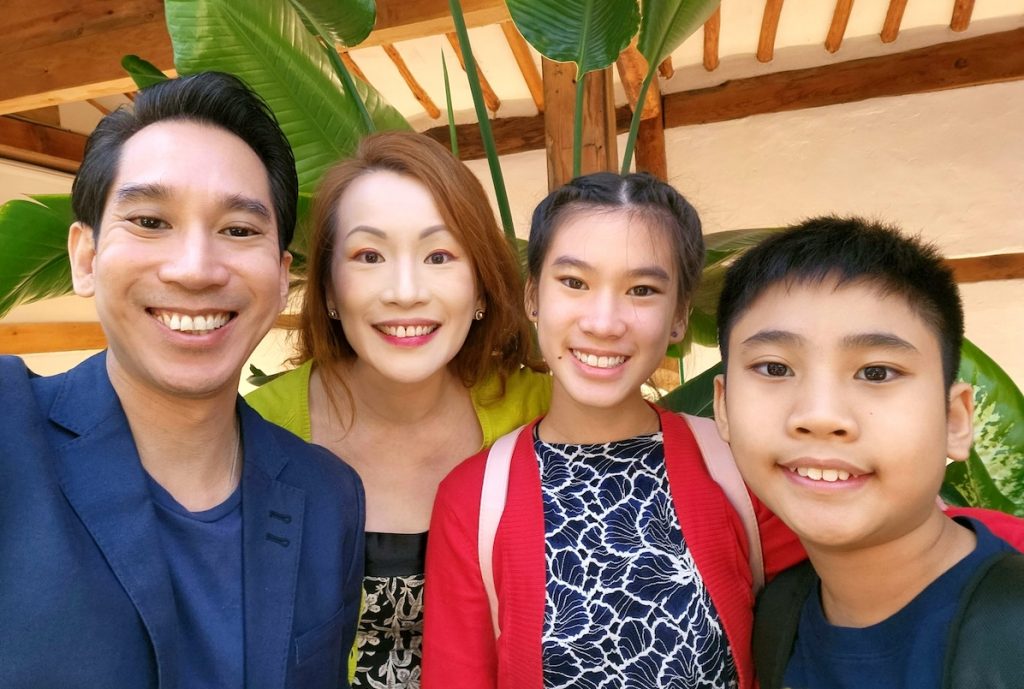
How would you define your parenting style?
There are three main pillars for me – Secure Attachments, Authoritative Parenting, and Personality-centric Parenting.
Parenting to me means unceasing efforts to build and maintain secure attachments (John Bowlby) with my children. As they witness their parents in their adult learning journey, it gives them vital points of reference to the kinds of relationships and attachments they will form in their young lives too!
Another theoretical model I resonate with is Diana Baumrind’s “Authoritative” (not Authoritarian) parenting style. While I understand the rationale of wanting to be our children’s “BFF”, I realise if we’re not mindful of what that means, we potentially shift to becoming permissive. This means we lose the privileged authority that we have as parents, of being our children’s ‘centre of influence’.
Maintaining our parental authority is pivotal in creating a secure base for our children to anchor themselves to as they navigate the world as they grow. Of course, by ‘authority’ I’m referring to our parental responsibility to guide and nurture our children closely. It is not to compel and dictate them to our preferences.
With a personality-centric mindset and the willingness to relate with each child uniquely as they are uniquely designed, we can create the much needed safe haven for them. It’s a secure refuge that our children can (and want to) return home to and seek wisdom and guidance from. Research shows that having this gives children greater confidence and resources (internal and external) to venture out to explore the world and build a life of their own.
I honestly believe that being child-centric is vital in parenting. By child-centric, I’m not referring to permissive indulgence. Instead, I’m referring to the need to understand our children’s deep-level personality inclinations, as well as our own. We are better equipped to engage at deeper, more meaningful levels with our children if we understand how different or similar we are to each child and our spouses. With that, comes more meaningful interactions and effective communication not just between parents and children, but also within the family.
Has your character, attitude and approach to life changed after becoming a mum? How so?
Interestingly, I’ve had the unusual privilege of having worked with children and families for a good decade before becoming a mother. I’ve also had many years of studying my own life experiences and those of the individuals I’ve worked with. Furthermore, with the work we do together, we’ve had many meaningful conversations and explorations about the kind of parents we wanted to be, BEFORE we actually had our first child.
We were very aware that. Our values and principles in life were clear and very much aligned. However, we were going to need to be extremely sensitive to WHO our children were innately created to be and how we were each going to relate differently to them.
About the baby pacifier…
One hilarious and very serious discussion that arose just before our firstborn arrived, amongst many, was the issue with the baby pacifier!
I grew up with babies around me pacified by pacifiers. I remember excitedly telling my hubby all about these incredible “snap pacifiers” that would snap shut when dropped so that the pacifier would remain clean. My excited glee was unfortunately met with his lightning quick retort of, “how would you like it if you were desperately trying to tell me something and all I keep doing is shove something in your mouth, like – All. The. Time.” He got me.
We made the decision that WE would be our children’s pacifiers – yes, I discarded those precious ingenious pacifiers too! This translated to exploring different ways to support and tend to our children. This could be through endless hugs, lullabies, chats, or new discoveries that will help them feel safe to decompress, receive comfort, heal and be restored to stand up and run free to explore and grow again.
In all seriousness…
There was also a more serious life perspective that changed for me.
I was genuinely positive about all the skills and experiences I had gained from doing so much for my family growing up. As well, I had thoughts about how I can help my little girl grow and learn similarly. However, my hubby cautioned me about doing the same as she was CLEARLY wired quite differently in significant areas of her personality. Our discussions led us to what is better known today as “parentification“. We landed on the agreement that children should be children.
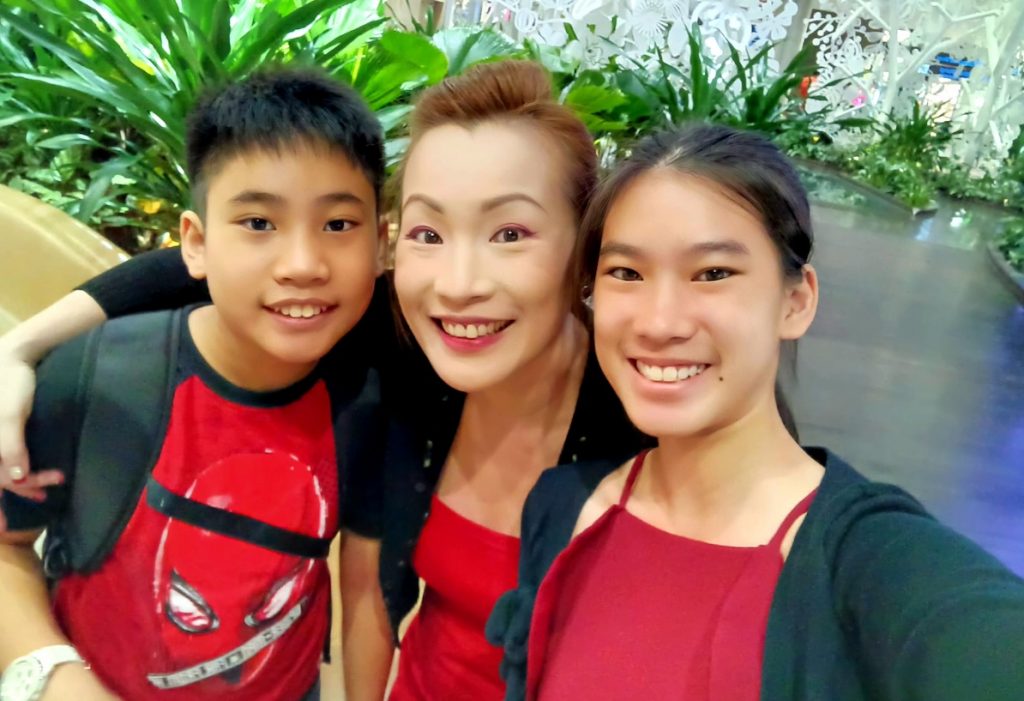
Most rewarding moment(s) in your motherhood journey thus far?
When my children come running home to me to share their lives with me.
I’m incredibly thankful my husband and I are their first ‘port-of-call’ when they are at their lowest and most vulnerable. It’s encouraging to watch them take deep breaths and pick themselves up and try again. I’m inspired when we receive calls, messages and experience them running back to us when they need solace or when they exclaim triumphant joy at overcoming challenges.
Three things you absolutely love about being a mum?
I love the overwhelming sense of wonderment I experience every time I look at my children!
From the first time I carried both of them in my arms, I marvelled at their itty-bitty fingers and toes. As they started formal education, my hubby and I intentionally refused to have our parenting centred around the meeting of school demands. We were also aware of the social pressures for them to be so many things or to do so many things and the compare with others around them.
Instead my husband and I have intentionally guarded our sense of wonderment towards our growing children. Our enjoyment and deep appreciation of who they uniquely are, help us grow our appreciation of their tremendous courage and their pure and unadulterated hopes for their future.
I love the privileged position of being my children’s safe haven in times of heartbreak and discouragement. I love being their number one fan when they run to the finishing line in triumph, no matter how small or big that challenge is!
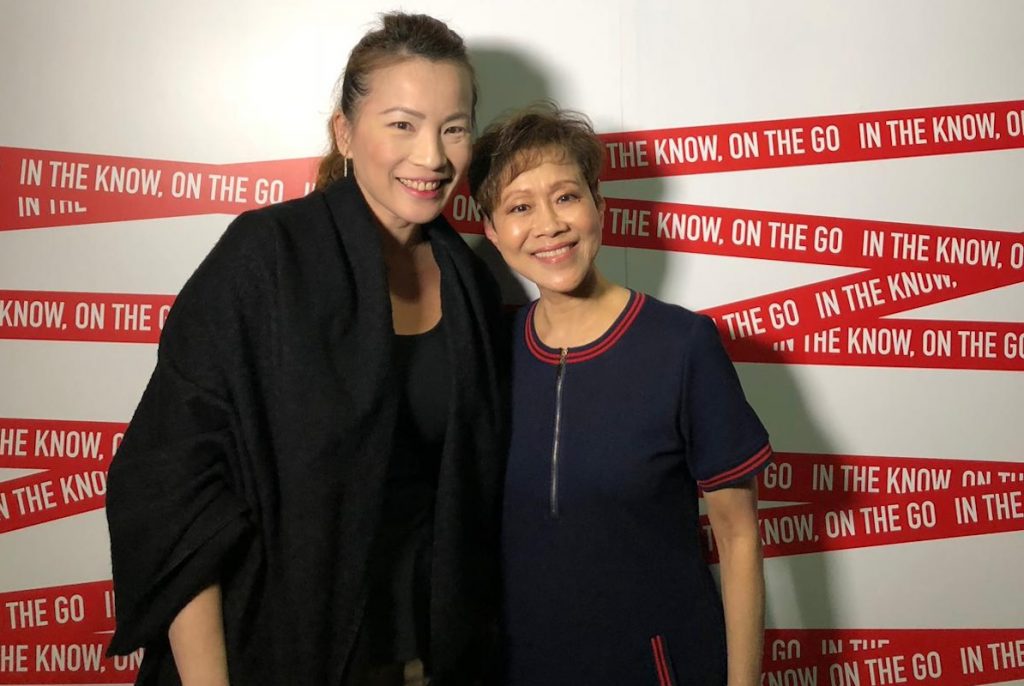
Tell us about the many career hats you wear.
Over 20 years, I’ve played many roles – a psychologist, counsellor, lecturer, and trainer. I’ve helped people with their mental health, taught counseling, and trained others. Also, I’ve been a consultant in corporate management and education, focusing on areas like leadership, people development, and relationships at work and in families.
Which of your career portfolios are you most passionate about? Why?
To be honest, I’m passionate about all of them as they are all inter-connected in relevance and in practice. The different portfolios I’ve grown over the years have been very enriching holistically. As long as I work with people, I gain more experience and am equipped to work with people from different walks of life. And this helps me in my personal relationships and in parenting too!
If I have to pick ONE, I will say the work with children, youths and their parents weigh in the greatest for me. Why? Because regardless single, married with or without kids, their existing struggles or dreams have roots that began during childhood. These either involved their parents, or the absence of them.
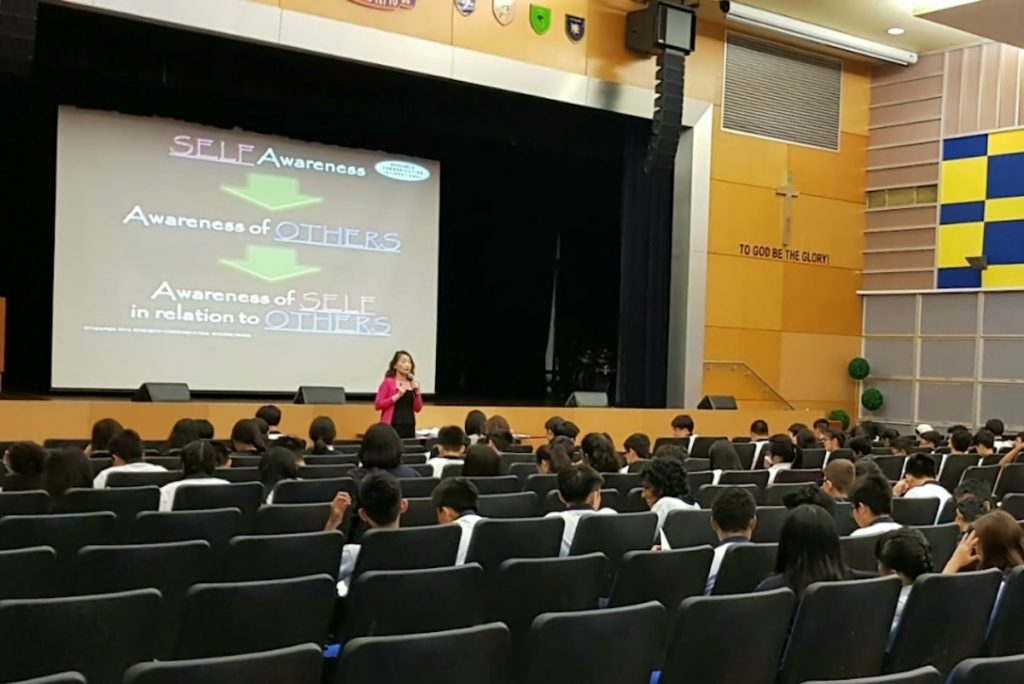
The Connected App. What is it? What inspired you to create it? We love to hear more!
Connected is a digital resource that helps parents understand the unique personality traits of their children. With easy-to-read, fun content, Connected provides personality-driven insights and practical tips customised to the unique personalities of each parent and their children.
We created Connected with everyday parents in mind. It draws on psychometric analysis and developmental psychology research and applications. Its creative content is designed to be easy to digest, engaging and entertaining too. Our discovery-based approach helps parents strengthen their unique relationship with each child and equips families to bring out the best in each other.
Mark, our CEO, my husband Charis (Chief Psychometrician) and I (Chief Psychologist) came together with the desire to understand our children better. Leveraging on our diverse professional backgrounds , we’ve created an engaging platform that any parents can use. It is our hope that as we continue to build this app, many more parents, families and communities will benefit from using personality as a lens. Additionally, they can get to experience deeper understanding and meaningful engagements with their children!
How do you think parents can benefit the most from subscribing/downloading the Connected App?
By simply downloading our Connected app, parents can build a profile for themselves and their child. They can immediately receive their personality snapshot to see how similar and different their child may be in comparison with them. With this free download, parents will also receive customised insights delivered daily to their Inbox by our Spotlight.
Subscribing to the Connected app will allow parents to unlock our Premium content and features. These include personality-driven handles and practical tips for real life scenarios encountered in everyday parenting situations. Parents will also have access to new content and features as they are developed, along with the option to add additional child profiles too!
By joining us on Connected, parents embark on a journey of seeing their children and themselves with new eyes. A shift in perspective can do wonders to help parents understand their children’s needs more accurately. They can also build precious trust bonds while they’re at it! When both parents, or other family members have their Connected Snapshots with the same child side-by-side, they will immediately appreciate how this child may instinctively relate differently to each parent, grandparent or caregiver. This can facilitate deeper conversations with their child to better understand their personality-driven responses and choices.
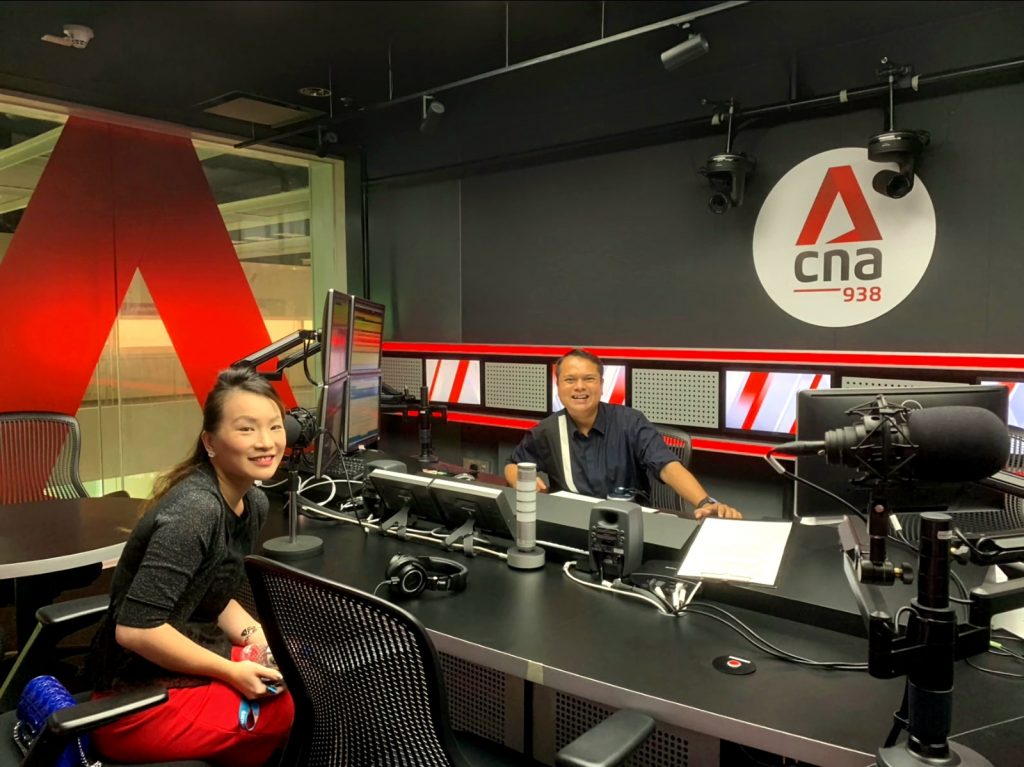
Three things I love to do with my kids are…
- Watching carefully curated movies and dramas that depict age appropriate life themes, relational dynamics, social challenges. Even better, if they showcase different career realities.
- Listening to music with my kids — exploring new favourites and sharing our newly minted playlists!
- Cuddling up with each kid separately, or together, to listen to them share about their lives. I also love to hear about their friendships, aspirations and hopes, fears and anxiety. It’s also great to celebrate their victories every chance we get! AND I tell my babies I love them a gazillion times a day — no joke!
I wish that I had more time for…
…time with kids that have nothing to do with school demands, activities and academic assessments. Even bedtime is hurried just to get kids to bed so they get sufficient rest to fight their good fight daily. Ouch!
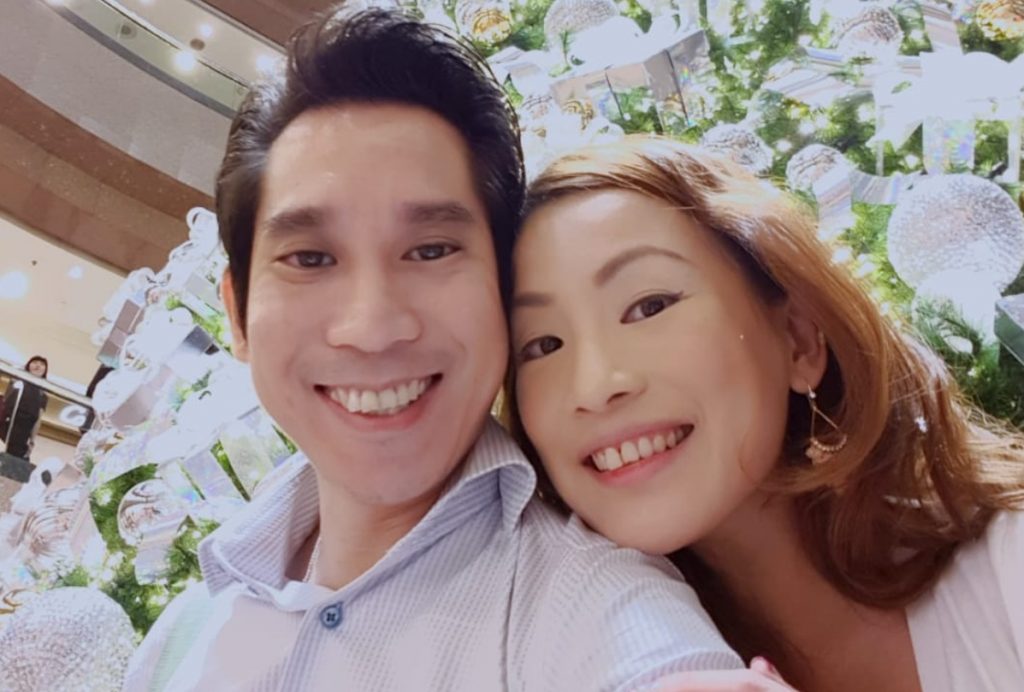
Future aspirations?
I hope that through the work I’m doing with my husband, many more will benefit from looking at themselves, others around them and their relationships through the personality lens. It is not about our own personality as the measuring yardstick. Rather, it is to give others space to embrace their unique strengths. Thus, instead of striving to become a “second-rate someone else”, we’re able to use our in-built resources to become our very own “first rate, one-and-only” versions of us as we grow and mature.
Personally, I am committed to journeying closely with my children as they discover themselves, their life direction and the world. It’s vital that they know they are never alone and that we’ll always have their backs regardless of the circumstance. Their very existence brightens up our lives! The best gift I can give to my children is the constant guided companionship they will need as they grow in self-awareness and discover the path they are called to invest in.



